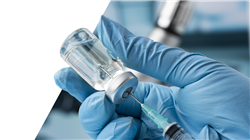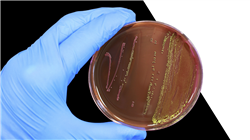University certificate
The world's largest faculty of medicine”
Introduction to the Program
Through this Postgraduate certificate, 100% online, you will design the most innovative programs to prevent diseases and optimize people's wellbeing"

A recent report published by the World Health Organization shows that Diabetes affects more than 422 million people on a global scale, at the same time that this figure is expected to increase in the coming years. Faced with this situation, health professionals have a responsibility to develop preventive programs aimed at reducing the likelihood of chronic diseases. To reduce this burden, practitioners need to implement techniques ranging from lifestyle changes to pharmacological interventions. However, this requires specialists to update their knowledge frequently in order to approach pathologies from a preventive perspective.
In this context, TECH has developed a pioneering and comprehensive program in Public Health Disease Prevention. Designed by experts in this field, the academic itinerary will delve into the risk factors of a wide range of pathologies, including cancer, cardiovascular diseases and even rare conditions. In this way, graduates will develop advanced skills to detect risk factors and evaluate the health status of citizens. Along the same lines, the syllabus will delve into emerging pathologies such as epidemic outbreaks, focusing on aspects such as the International Health Regulations and measures to deal with these situations. This will allow specialists to develop strategies to prevent diseases and carry out an evaluation of the effectiveness of Public Health programs.
On the other hand, the university program acquires greater dynamism thanks to the multimedia pills and the wide variety of didactic resources offered by TECH (such as specialized readings, interactive summaries or case studies). In addition, TECH's Relearning methodology will allow doctors to obtain a much more effective update in a shorter period of time. Therefore, their learning process will be completely natural and progressive, so they will not have to invest long hours of study.
You will develop sophisticated strategies to prevent Cardiovascular Diseases through 150 hours of the best digital teaching"
This Postgraduate certificate in Public Health Disease Prevention contains the most complete and up-to-date scientific program on the market. The most important features include:
- The development of case studies presented by experts in Public Health and Health Management
- The graphic, schematic and eminently practical contents with which it is conceived gather scientific and practical information on those disciplines that are indispensable for professional practice
- Practical exercises where the self-assessment process can be carried out to improve learning
- Its special emphasis on innovative methodologies
- Theoretical lessons, questions to the expert, debate forums on controversial topics, and individual reflection assignments
- Content that is accessible from any fixed or portable device with an Internet connection
You will delve into Neonatal Screening Programs to identify early metabolic, genetic and endocrine diseases"
The program’s teaching staff includes professionals from the sector who contribute their work experience to this specializing program, as well as renowned specialists from leading societies and prestigious universities.
The multimedia content, developed with the latest educational technology, will provide the professional with situated and contextual learning, i.e., a simulated environment that will provide immersive education programmed to learn in real situations.
This program is designed around Problem-Based Learning, whereby the professional must try to solve the different professional practice situations that arise during the course. For this purpose, students will be assisted by an innovative interactive video system created by renowned and experienced experts.
Are you looking to take a comprehensive approach to chronic disease prevention? Through this program you will acquire strategies to promote healthy and sustainable aging"

The Relearning system applied by TECH in its programs reduces the long hours of study so frequent in other teaching methods"
Why study at TECH?
TECH is the world’s largest online university. With an impressive catalog of more than 14,000 university programs available in 11 languages, it is positioned as a leader in employability, with a 99% job placement rate. In addition, it relies on an enormous faculty of more than 6,000 professors of the highest international renown.

Study at the world's largest online university and guarantee your professional success. The future starts at TECH”
The world’s best online university according to FORBES
The prestigious Forbes magazine, specialized in business and finance, has highlighted TECH as “the world's best online university” This is what they have recently stated in an article in their digital edition in which they echo the success story of this institution, “thanks to the academic offer it provides, the selection of its teaching staff, and an innovative learning method aimed at educating the professionals of the future”
A revolutionary study method, a cutting-edge faculty and a practical focus: the key to TECH's success.
The most complete study plans on the university scene
TECH offers the most complete study plans on the university scene, with syllabuses that cover fundamental concepts and, at the same time, the main scientific advances in their specific scientific areas. In addition, these programs are continuously being updated to guarantee students the academic vanguard and the most in-demand professional skills. In this way, the university's qualifications provide its graduates with a significant advantage to propel their careers to success.
TECH offers the most comprehensive and intensive study plans on the current university scene.
A world-class teaching staff
TECH's teaching staff is made up of more than 6,000 professors with the highest international recognition. Professors, researchers and top executives of multinational companies, including Isaiah Covington, performance coach of the Boston Celtics; Magda Romanska, principal investigator at Harvard MetaLAB; Ignacio Wistumba, chairman of the department of translational molecular pathology at MD Anderson Cancer Center; and D.W. Pine, creative director of TIME magazine, among others.
Internationally renowned experts, specialized in different branches of Health, Technology, Communication and Business, form part of the TECH faculty.
A unique learning method
TECH is the first university to use Relearning in all its programs. It is the best online learning methodology, accredited with international teaching quality certifications, provided by prestigious educational agencies. In addition, this disruptive educational model is complemented with the “Case Method”, thereby setting up a unique online teaching strategy. Innovative teaching resources are also implemented, including detailed videos, infographics and interactive summaries.
TECH combines Relearning and the Case Method in all its university programs to guarantee excellent theoretical and practical learning, studying whenever and wherever you want.
The world's largest online university
TECH is the world’s largest online university. We are the largest educational institution, with the best and widest online educational catalog, one hundred percent online and covering the vast majority of areas of knowledge. We offer a large selection of our own degrees and accredited online undergraduate and postgraduate degrees. In total, more than 14,000 university degrees, in eleven different languages, make us the largest educational largest in the world.
TECH has the world's most extensive catalog of academic and official programs, available in more than 11 languages.
Google Premier Partner
The American technology giant has awarded TECH the Google Google Premier Partner badge. This award, which is only available to 3% of the world's companies, highlights the efficient, flexible and tailored experience that this university provides to students. The recognition as a Google Premier Partner not only accredits the maximum rigor, performance and investment in TECH's digital infrastructures, but also places this university as one of the world's leading technology companies.
Google has positioned TECH in the top 3% of the world's most important technology companies by awarding it its Google Premier Partner badge.
The official online university of the NBA
TECH is the official online university of the NBA. Thanks to our agreement with the biggest league in basketball, we offer our students exclusive university programs, as well as a wide variety of educational resources focused on the business of the league and other areas of the sports industry. Each program is made up of a uniquely designed syllabus and features exceptional guest hosts: professionals with a distinguished sports background who will offer their expertise on the most relevant topics.
TECH has been selected by the NBA, the world's top basketball league, as its official online university.
The top-rated university by its students
Students have positioned TECH as the world's top-rated university on the main review websites, with a highest rating of 4.9 out of 5, obtained from more than 1,000 reviews. These results consolidate TECH as the benchmark university institution at an international level, reflecting the excellence and positive impact of its educational model.” reflecting the excellence and positive impact of its educational model.”
TECH is the world’s top-rated university by its students.
Leaders in employability
TECH has managed to become the leading university in employability. 99% of its students obtain jobs in the academic field they have studied, within one year of completing any of the university's programs. A similar number achieve immediate career enhancement. All this thanks to a study methodology that bases its effectiveness on the acquisition of practical skills, which are absolutely necessary for professional development.
99% of TECH graduates find a job within a year of completing their studies.
Postgraduate Certificate in Public Health Disease Prevention
This University Course in Disease Prevention in Public Health created by TECH Global University is an exceptional opportunity to acquire specialized knowledge and practical skills in the field of disease prevention. Designed for health professionals and people interested in improving the health of communities, this program offers comprehensive training that will allow you to contribute significantly to the collective well-being. The 100% online mode of this degree offers unparalleled flexibility; you will have access to the content at any time and from anywhere, which facilitates compatibility with other personal and professional responsibilities. This flexibility eliminates geographical barriers and allows you to learn at your own pace. The course content is comprehensive and addresses a wide range of essential topics in disease prevention. You will explore areas such as epidemiology, disease surveillance, health promotion, immunization, chronic or communicable disease prevention strategies, and public health program planning and evaluation. Each module is designed to provide an in-depth, practical understanding of effective strategies or methods to prevent disease and promote health.
Specialize in public health disease prevention.
The importance of disease prevention has become more evident in recent years, and the demand for trained professionals in this field continues to grow. Upon completion of the University Course, you will be equipped with the tools necessary to design, implement and evaluate prevention programs that can have a significant impact on the health of communities. This training is delivered by a team of experts with extensive research and practice experience. Professors share not only theoretical knowledge, but also practical experiences and case studies that enrich learning. This combination prepares you to face real challenges in the field of public health and apply prevention strategies effectively. Ultimately, this program represents a valuable investment for those seeking to play a crucial role in improving public health. With its flexible approach, comprehensive content and the support of subject matter experts, this course offers the tools and knowledge needed to make a significant difference in the field of disease prevention and health promotion. Enroll now!







